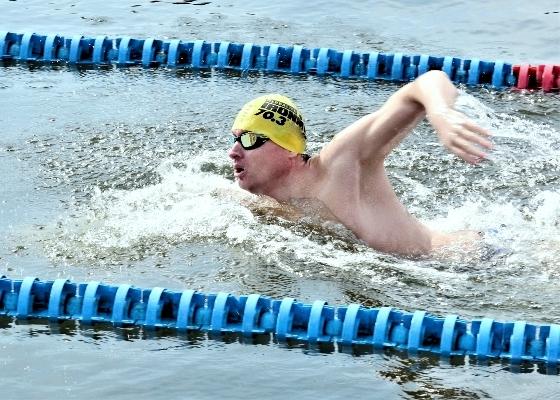Life Style
How to Prepare for Your First Winter Swim: A Beginner’s Guide

Winter swimming is an entertaining but difficult hobby. It consists of cold winter swimming. Winter swimming is swimming outdoors in icy water. The thermometer may approach zero. This is not like swimming in a heated pool. Cold water shocks your body first; it can numb you and render you panting. This is why you have to get ready before your first swim.
Initially, inspect your health
It is better to consult with a physician before going for the winter swim. They are the experts who can tell you if it is good or bad for your health. Share your doctor’s thoughts. Be sure you are ready to tolerate the cold. Start your preparation if you have the go-ahead.
Understand Cold Water Safety
The body is cruel to cold water. It drops your core body temperature and quickly cools your skin. Hypothermia is a serious risk. Your body temperature drops too low at this point. Cold water shock is another possibility; it might result in a gasp or panic. It is crucial to learn about these risks. It is risky to swim without a friend or anyone around.
Begin with mental preparation
Winter swimming demands mental toughness. Cold water can be startling. Mentally, you need to get ready. Picture your swim. Think good things about being in cold water. Mental preparation enables you to maintain calm and appreciate the swim.
Start cold water acclimatization.
You should gradually acclimate your body to chilly water. Start with chilly showers or baths at home. Over days or weeks, gradually lower the water temperature. For the first time, do not stay in water for too long. Make it slower and short for your body to acclimate with the cold of the water.
Pick the Correct Swimming Equipment
Winter swim apparel helps you feel at ease and stay secure. Insulation can come from a good wetsuit or drysuit. These regions lose heat most rapidly. Always select equipment that fits well. Stay away from loose or tight apparatus.
Find a protected swim area
Pick a secure spot for your first winter dip. Look for places famous for winter swimming. These sites normally boast good water quality and lifeguards throughout the winter. Keep away from places with powerful currents, underwater hazards, or rocks. Above all other things is safety.
Before you get in the water, warm up
Some warm-up activities should be done before your swim. Stretching or light running could help to improve blood flow. Warm muscles are better at dealing with cold water. Avoid excessive sweating; merely enough to feel warm. A good warm-up helps your body adapt and minimizes the possibility of damage.
Plan a short swim distance
For your first cold-water swim, keep it brief. Start with one to three minutes in the water. Stay close to the shore or departure. As you find yourself acclimated, you can then increase your swim time. Listen to your body; leave if you feel dazed or numb.
Apply Breathing Strategies
Cold water can bring on panic or fast breathing. Practice deep, deliberate breathing. This calms both your body and your mind. Controlled breathing helps you swim more effectively and lessens shock. Even before your swim day, it’s wise to do breathing exercises.
Establish a Support Group
Never swim alone in winter. Either invite a friend or join a winter swimming group. Having others close by helps to guarantee safety. Your support staff can help or seek assistance should you run into difficulties. They can also cheer you on and make the experience enjoyable.
Get ready for after the swim
Rapid heating is absolutely critical after you exit the water. Bring a thick towel and warm clothing. A thermos with a hot beverage raises your body temperature. Avoid hot showers straight; instead, warm up gently with dry garments and mild movement. This prevents after drop, a hazardous temperature decline.
Understand the Rules and Best Practices
Follow regional rules for winter swimming. Certain locations may impose time restrictions or a lack of lifeguard visibility. Value other swimmers and the environment. Stay away from alcohol before and following the swim since it reduces your body’s capacity to cope with cold. Eat nutritious foods and keep yourself hydrated.
Think about the relevance of lifeguard instruction
There are dangers with winter swimming. It’s very important to know how to react in an emergency. Local American lifeguard courses can improve your safety knowledge. Learning how to manage cold water crises will let you help others. For swimmers as well as for rescuers, lifeguard certification is quite beneficial. Trained lifeguards make a safer swimming atmosphere.
Design Your Winter Swimming Schedule
Arrange for regular sessions after your first swim. Creating a schedule improves your body’s response to cold. Keep to your own speed. Slowly raise your swim distance and length. Watch how you feel before, throughout, and after swims. This helps to avoid cold water injuries.
The Health Benefits
For its health advantages, winter swimming is famous. It improves immunity and stimulates blood flow. Many swimmers say that their mood improves and their stress decreases. Metabolism is also improved by the cold water treatment. Benefits, however, depend on safe implementation and adequate readiness.
Become a member of a Winter Swimming Society
Newcomers gain much from group membership or internet community participation. Experiences and advice can be shared. Other winter swimmers’ encouragement inspires you. They can provide safety recommendations and local swimming locations. Meeting individuals who enjoy winter swimming is easy with this.
Last Thoughts on Winter Swimming Safety
Good preparations make winter swimming both safe and fun. Proceed gradually and meticulously. Cold water is potent yet satisfying. Always pay attention to the boundaries of your body. The secret is having knowledge and support.
Thorough readiness is advised by the American Lifeguard Association before beginning winter swimming. Certifications and lifeguard education protect both swimmers and rescuers. If you want to seriously pursue winter swimming, finding “lifeguard classes near me” help you to increase your safety knowledge and confidence. Planning and being responsible ensure a great winter swim trip.
-

 Celebrity5 months ago
Celebrity5 months agoThe Story Behind Akon’s Net Worth and His Rise to Fame
-

 Celebrity9 months ago
Celebrity9 months agoPeter Tuchman Net Worth Revealed: The Face Behind Wall Street’s Chaos
-

 Fashion10 months ago
Fashion10 months agoAron Accurso Net Worth: A Look Into the Musical Genius Behind Ms. Rachel
-

 Celebrity3 months ago
Celebrity3 months agoGeorge Michael’s Net Worth and the Stories You Might Not Know


